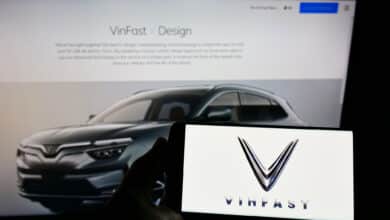
A dispute over subsidies in the field of electromobility is brewing between the EU and the USA. Vehicles of European brands were to be left out of the US subsidies for electric cars. Now, however, U.S. policymakers apparently want to give in and also support vehicles manufactured in Europe with tax credits. The prerequisite for this, however, is that the cars are also purchased in the US.
U.S. IRA as cause of dispute
The automotive industry is currently suffering almost worldwide from a rapid shrinkage in electric car sales. The reason for this is the expiration of the subsidies that many states provided to car manufacturers and thus also to buyers of e-cars. A corresponding model also existed in Germany in the form of the so-called environmental bonus. Unfortunately, this expired on December 31, 2022. In this country and in the rest of Europe, sales figures immediately stagnated. The situation is different in the USA. With its Inflation Reduction Act (IRA), the United States of America is holding fast to government support for green technologies. Consequently, U.S. brands actually saw an increase in sales. Naturally, EU policymakers are not at all pleased that the U.S. is swimming against the tide here.
In order to prevent a serious dispute from arising in the first place, EU Commission President Ursula von der Leyen and US President Joe Biden met for joint talks. Together, they agreed to negotiate an agreement as quickly as possible that would make it possible to include electric cars manufactured in Europe in the U.S. subsidies. As things stand, the IRA would ensure that models from US brands would have a much better standing on the US market than EU vehicles. Behind the scenes, it is not only the shrinking sales figures of European brands on the US market that are feared. Rather, the IRA threatens an emigration of European-based battery manufacturers to the U.S. market. Tesla, for example, announced in February that it would put the planned battery production in Grünheide on ice for the time being and would prefer to manufacture batteries in the USA. In this regard, the IRA certainly plays a decisive role.
Possible exception for battery production
Of course, companies cannot be blamed for choosing the production location that offers the best conditions. However, in this regard, the IRA seemed a bit like the U.S. was trying to forcefully bring important industries such as electromobility into its own country. It is therefore all the more important that the meeting between Joe Biden and Ursula von der Leyen has now sent out a signal. As part of the “targeted agreement,” they want to stipulate that critical raw materials extracted in the EU should also benefit from the IRA. For the time being, this should provide reassurance on the part of European battery manufacturers. The only question is how long this reassurance will last. After all, words must now be quickly followed by deeds. The Privacy Shield shows that this is rarely the case with agreements between the EU and the USA. Here, both parties have already agreed on a successor in spring 2022. Now we have to wait for the appropriateness decision of the EU Commission.




No replies yet
Neue Antworten laden...
Gehört zum Inventar
Beteilige dich an der Diskussion in der Basic Tutorials Community →